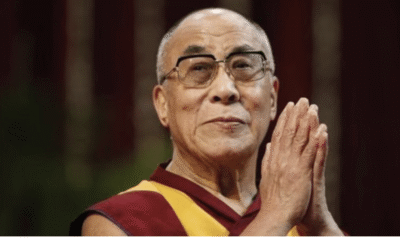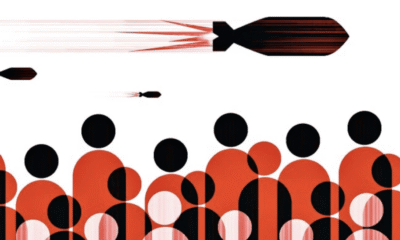
|
Getting your Trinity Audio player ready...
|
Several years ago, when we were initiating dialogue with the PDP to explore the possibility of forming a coalition government in Jammu and Kashmir, I had the occasion to talk with a senior leader of that party. In response to my statement that Prime Minister Narendra Modi was keen on the progress and development of the state, the leader told me that every government in Delhi had talked about it and there was nothing new. Another leader argued that on all human development indices (HDI), J&K was doing better than other Indian states.
As a matter of fact, the state ranked 11th among Indian states in the HDI rankings in 2019, ahead of bigger states like Bihar, UP, MP and West Bengal. The reason was the favourable treatment it had received from the Centre all along. For a population of just 13 million, its budget outlay for 2021-22 is around Rs 1,10,000 crore, whereas the same for UP, which has 20 times the population is Rs 5,50,000 crore. While UP generates an internal revenue of almost 80 per cent of its outlay, J&K generates less than 20 per cent. UP fills its revenue gap through borrowings, while J&K fills it through central grants.
Indicating that development was never the issue, a Kashmiri leader stated at the recently-held Young Thinkers Meet that an average middle-class Kashmiri, unlike those elsewhere in India, owns a house with at least four bedrooms and a private garden with a dozen walnut and a couple of apple trees.
No wonder the mainstream Valley leadership was dismissive about development. So what drove politics in the state? What the leader I am referring to said subsequently provided the answer. There was an insistence on recognising that J&K’s merger with India in 1947, although it had other options as a Muslim-majority state, was a concession by its people and, hence, India should perpetually be grateful to them.
This had bred a sense of “Kashmiri exceptionalism” in the mainstream political establishment of the state for decades. Article 370 was seen as India’s grateful gesture, not for material development, but as a stamp of acknowledgement of that exceptionalism. Successive governments in Delhi chose to ignore this subterranean sentiment and continued to pamper the leadership.
This sense of exceptionalism and the syndrome of “Ladlapan” (of being pampered) dominated the state’s politics for seven decades. They were exploited by forces within and without to promote an entire infrastructure of separatism and terrorism in the Valley.
The nullification of Article 370 two years ago was intended to end this exceptionalism. While continuing to promote development for the benefit of ordinary people, the Union government chose to give the utmost importance to establishing peace and democracy at the grassroots. On the development front, despite Covid, indicators like employment, investments and infrastructure development are showing promising prospects. The unemployment rate has fallen from 19 per cent last year to 10 per cent this year. Over 20,000 people, including women, have been provided loans by J&K Bank of up to Rs 10 lakh. The government plans to take it to 50,000 beneficiaries. The UT now has seven medical colleges and two cancer institutes. Two start-up incubation centres have come up at NIT, Srinagar and IIT, Jammu. On the Covid front, the administration has provided jabs to almost 60 per cent of the eligible population.
Lieutenant Governor Manoj Sinha who has completed one year in office has brought dynamism and order in the functioning of the UT. His accessibility, extensive travel by road and focus on grassroots development and democracy have not only energised the administration, but also endeared him to the masses. He has ensured that the process to strengthen grassroots democratic institutions like village, block and district panchayats, which began a couple of years ago, is taken forward by delegating “fund, function and functionary” to those units.
There was a significant drop in the number of terror attacks immediately after the abrogation of Article 370. Although the number of attacks increased marginally last year, it is still lower than pre-August 2019 levels. The number of terrorists arrested has increased significantly, together with the busting of terrorist hideouts, unearthing of tunnels across the borders and diffusing of IEDs. The J&K police has come of age, calling for the reduction of dependence on other security forces. People seem to realise that the special constitutional status is not going to come back, and they do not seem too bothered about it. None of the leaders talked about the revocation of Article 370 at the meeting with the PM last month.
All this points to a significant improvement in the situation. Going forward, a couple of important challenges remain. There was a time in the Valley when people used to taunt each other saying “Nabaz as manz chuy Pakistan” — meaning, “Pakistan runs in your pulse”. This is no longer the case with the majority of the population. But there is palpable resentment in a section of the populace which feels it was deceived.
Attenuating this resentment before it is exploited by the “exceptionalists” is important. At the moment, this resentment is finding expression through the rejection of the UT status and the demand for restoration of full statehood. A new generation of leaders not seeped in the glib mindset of exceptionalism is championing these demands. Addressing them through early elections to the legislature and restoration of statehood at the appropriate time will strengthen this leadership. Placing J&K in the hands of this new leadership and reducing dependence on the central government and security forces is the logical aspiration after the annulment of Article 370.
(The article was originally published in Indian Express on August 6, 2021. Views expressed are personal.)



